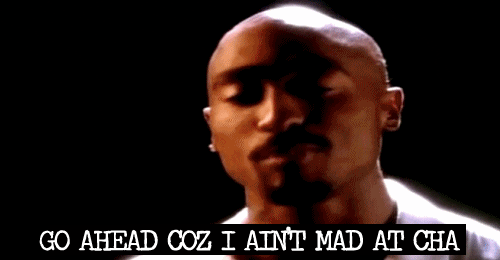Why Empathy & Love Trigger Narcissists
Narcissists feel compelled to attack those who are loving--why?

Narcissists attack empathetic people because they recognize that empathy is something they do not feel.
When a narcissist does anything good, it’s motivated by self interest. Empathy is something they perform; they don’t understand it as a feeling. Their brain development was stunted, and they’ve never actually felt empathy.
They think it’s just an idea, something all people pretend to have.
When they experience a genuinely empathetic person, their shame is triggered.
They become agitated.

Empaths differ from narcissists in that we can talk about our feelings and traumas; narcissists cannot do this because they repress their feelings and their traumas evoke shame, which they can’t process.
Therefore, they recognize that this person may be authentic: this would mean that this person is better than them in some way.
A narcissist cannot endure anyone being better than them, because they have split thinking. Everything is all good or all bad.
If they are not the best in the world, then they are the worst in the world.
Therefore, a trigger of shame will cause them to want to wreck the person with empathy in order to prove that empathy is a fundamental weakness or that the empath’s emotional intelligence is an act.
Even though the person’s empathy extends to them and is wisdom that all people can benefit from listening to, they can only experience an empathetic person as someone who triggers their pathological envy.

A person with emotional intelligence would experience receiving empathy as strength which they admire and feel gratitude for, but narcissists only feel at the level of toddlers, so a mature, empathetic person just makes them wildly envious.
But people with empathy are very resilient, so when a narcissist messes with an empath, it often leads to their own mental collapses anyway, in which they become suicidal.
All narcissists will wrestle with an empathic borderline at some point in their lives and have these collapses, so we are a severe trauma they’ve experienced.
This causes them to absolutely hate and despise good people and feel triggered whenever they meet them.
The shame we provoke in them is something they experience as an abuse of them, because they believe fully that they are entitled and are the best and most important in the world.
But the empath acts like all people matter and are equal.

They act like all people deserve grace and human rights: they even cry for them — even people who are flawed and imperfect. (Like they are, like we all are, but narcissists can never admit that, because a narcissist lives in their ego fantasy self while an empath lives in reality).
Narcissists are most severely agitated by what they lack: innocence and love.
Empaths stand up for victims and ask people to consider others' feelings.
On top of that, empathetic people are always asking that abusers be held accountable and to stop abuses. They experience this like they experienced adults as a child: people who had the power to get them in trouble for their bad deeds.
And kids don’t like to get caught.
They're also severely paranoid if they ever begin to feel love for a person, because the first person they mirrored and loved turned into an abusive monster on them, so they think you will too.
Love triggers their severe cPTSD.
This is why they stalk kind people: they’re desperate to prove to themselves that you’re not actually good. They want to “catch you” unmasked. They want proof that you are like their parent was, a fraud.
They seek to prove that love and empathy are not real feelings — that they don’t exist — that there’s no such thing as a “victim” of abuse. If that were true, then there’s nothing wrong with them, and everyone they have abused deserves it.
Narcissists believe the only real thing is power through abuse, but the reality is that only love is power, which is why they must always pretend they feel it to be able to manipulate others and get away with it.
And real love can strip their an abuser’s power away in a dash, as history has shown us repeatedly.
They know this, but can’t admit it, so they become paranoid due to recognizing that an empathic person may be a threat to their mask.

They need that to believe they personally aren’t a fraud, and that they are actually better than you.
YOU are the evil one: they’re projecting.
In their mind, you’re the Joker. They’re Batman.
When they don’t find what they are looking for, or if the empath discovers what they are doing and rejects them or exposes them, this makes them collapse: they become suicidal.
Since they can’t process this shame, they must project it. They can’t survive hating themselves, so they must hate the empath.
They become enraged, and they then want to murder the empath.

They then enter into a full break with reality in which they become delusional and obsessed.
They think their only survival depends on the empathetic person being fully broken or eliminated as their competition.
They will then attack.
This is why things like mass shootings happen so often in schools: the narcissist has had a mental break, and they are targeting children because of their innocence and teachers for their intelligence, both things they must constantly mask as having.
But often, these mental breaks happen more intimately, in which they are targeting their partner, their sibling, their friend, or just an empath they’ve become obsessed with.
After the attack, they won’t feel guilt: they feel relief.
They’ve projected their shame.
They will even smile and smirk.

And they still think they’re a good person as they do it.
They will argue it’s deserved, as they can only survive their mental state through cognitive distortions in which they believe the empath is the worst person in the world.
Because they are the best and most powerful person in the world.
Therefore, their emotions are regulated in destroying someone kind-hearted as thoroughly as they can and proving they are better than that person.
If that person reacts in anger, this only proves to them, finally, that the empath was a narcissist all along and they were justified in all they did.

Or is it?
There’s the empath now…

They may be dead, but their love still isn’t.
What the narcissist doesn’t understand in trying to break an empath is that the empath is already thoroughly broken, and has been broken again and again and again.
We were broken at birth, when our parents denied our humanity and categorized us as the scapegoat child — all bad and unworthy of love — when we were just innocent babies.
But we have been attacked so many times that our love and power increases with every death and rebirth.
Because we take all the pain they projected into us, we examine it, then we transmute the hurt back into its rightful energy: we alchemize it back into love.
We feel and heal what they can’t process. We grieve.
My stalker posted a meme on the one year anniversary of him drugging and raping me for three weeks: he made a Facebook account that only existed for those few weeks of the anniversary, and he continually posted things that confessed to what he did to me through projection, as well as framing himself as if he had all my interests — like poetry, space, spirituality, and even BPD. He even posted images of girls with purple or pink hair like me.
I found it because I was googling him on the anniversary to see if he was dead or arrested yet and if I was safe, due to my PTSD being so intense. But his projections were illuminating. The meme said this:
“If you completely break a person, and they still wish you well, then you’ve just lost the greatest person to ever walk into your life.”
What they accuse is confession.
He completely broke me, but I pity him and grieve for whatever happened to him in childhood, praying for healing for him.
My empathy has expanded, not shrunk, even grieving the worst pain of my life.
I’m grateful for the wisdom. I grow closer to God with every lesson learned.
Nothing scares them more than the resilience and love of an empath, a borderline.
They experience grief and collapses entangling with us, and the loss of unconditional and merciful love, which every person wants deep down, haunts them all their days.
After the crucifixion of the empath comes their resurrection.

(Famous empath 👆🏼 — Even death doesn’t dull the power of love.)
If you found this essay helpful, consider subscribing. You'll get two blogs a week, and your support will help me continue to produce content. Thank you so much for reading!
Check out my books at this link:

Anne M. Champion is the author of This is a Story About Ghosts: A Memoir of Borderline Personality Disorder (KDP, 2024), Hunted Carrion: Sonnets to a Stalker (KDP, 2024), She Saints & Holy Profanities (Quarterly West, 2019), The Good Girl is Always a Ghost (Black Lawrence Press, 2018), Book of Levitations (Trembling Pillow Press, 2019), Reluctant Mistress (Gold Wake Press, 2013), and The Dark Length Home (Noctuary Press, 2017). Her work appears in Verse Daily, diode, Tupelo Quarterly, Prairie Schooner, Crab Orchard Review, Salamander, New South, Redivider, PANK Magazine, and elsewhere. She was a 2009 Academy of American Poets Prize recipient, a 2016 Best of the Net winner, a Douglas Preston Travel Grant recipient, and a Barbara Deming Memorial Grant recipient. She has degrees in Behavioral Psychology and Creative Writing.
